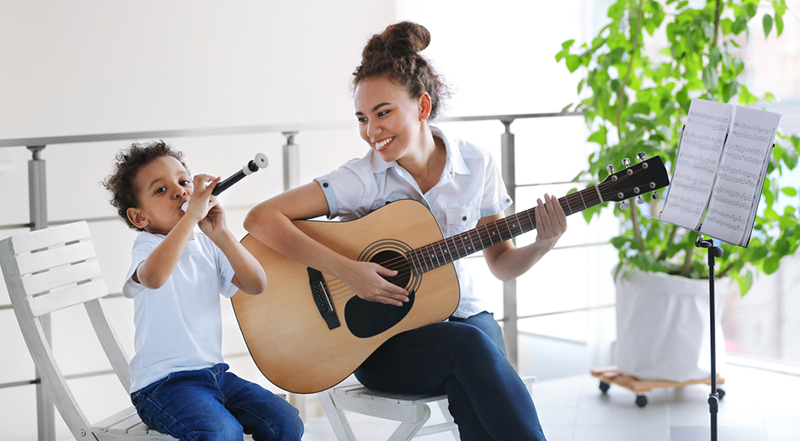Fighting the signs and symptoms of ageing is a billion-dollar-business and while you might try potions and serums that promise to keep you looking young, the key to feeling it might actually be in rhythm and melody.
Researchers are reminding us learning, particularly to play music, can “limit cognitive decline” as we age.
Often as children we attend lessons. They might be in musical instruments, languages, gymnastics, rowing, home economics, origami, ribbon twirling, orienteering – whatever you fancy. And whether or not we give up the lessons and write them off as childhood hobbies or go the distance and turn professional, it is in our older age that we might really feel the benefits of that learning.
“A growing number of studies show that music lessons in childhood can do something perhaps more valuable for the brain than childhood gains: provide benefits for the long run, as we age, in the form of an added defense against memory loss, cognitive decline, and diminished ability to distinguish consonants and spoken words,” National Geographic reported.
For the parents among us, you now have another science-backed reason to remind your teenagers to practise the clarinet. You’re welcome. But it’s not just a kids’ game. It’s never too late to take up the musical kind of brain training.
“Even a small amount of training can have long lasting effects,” said Doctor Jennifer MacRitchie from the University of Western Sydney in a piece for The Conversation.
“But this doesn’t mean that those who have never played an instrument in childhood have missed the boat. The ageing brain is plastic: that means it is able to learn new things all the time.”
Dr MacRitchie reported that because playing music involves many different parts of the brain, “even a short-term program for older adult musical novices can lead to generalised improvements for cognitive ability”.
Several studies have found learning to play an instrument and the coordination required to do so can have a profound impact on the brain.
As reported by National Geographic: “In a 2003 study, Harvard neurologist Gottfried Schlaug found that the brains of adult professional musicians had a larger volume of gray matter than the brains of nonmusicians had.”
“Schlaug and colleagues also found that after 15 months of musical training in early childhood, structural brain changes associated with motor and auditory improvements begin to appear.”
What is it about playing an instrument that helps the ageing brain?
Playing an instrument requires several regions of the brain to work together at the same time. Some of the benefits of that include:
- Coordination: Often playing an instrument requires fingers to move individually and to a certain rhythm which helps motor function.
- Audio cues: When playing music, often the correct movement of fingers generates a sound and a positive audible response which instantly tells the player that they’ve moved correctly. This is particularly valuable during rehabilitation.
- Creativity: Playing music puts the player in a create environment that supports lateral thinking as well as general social and physical wellbeing.





